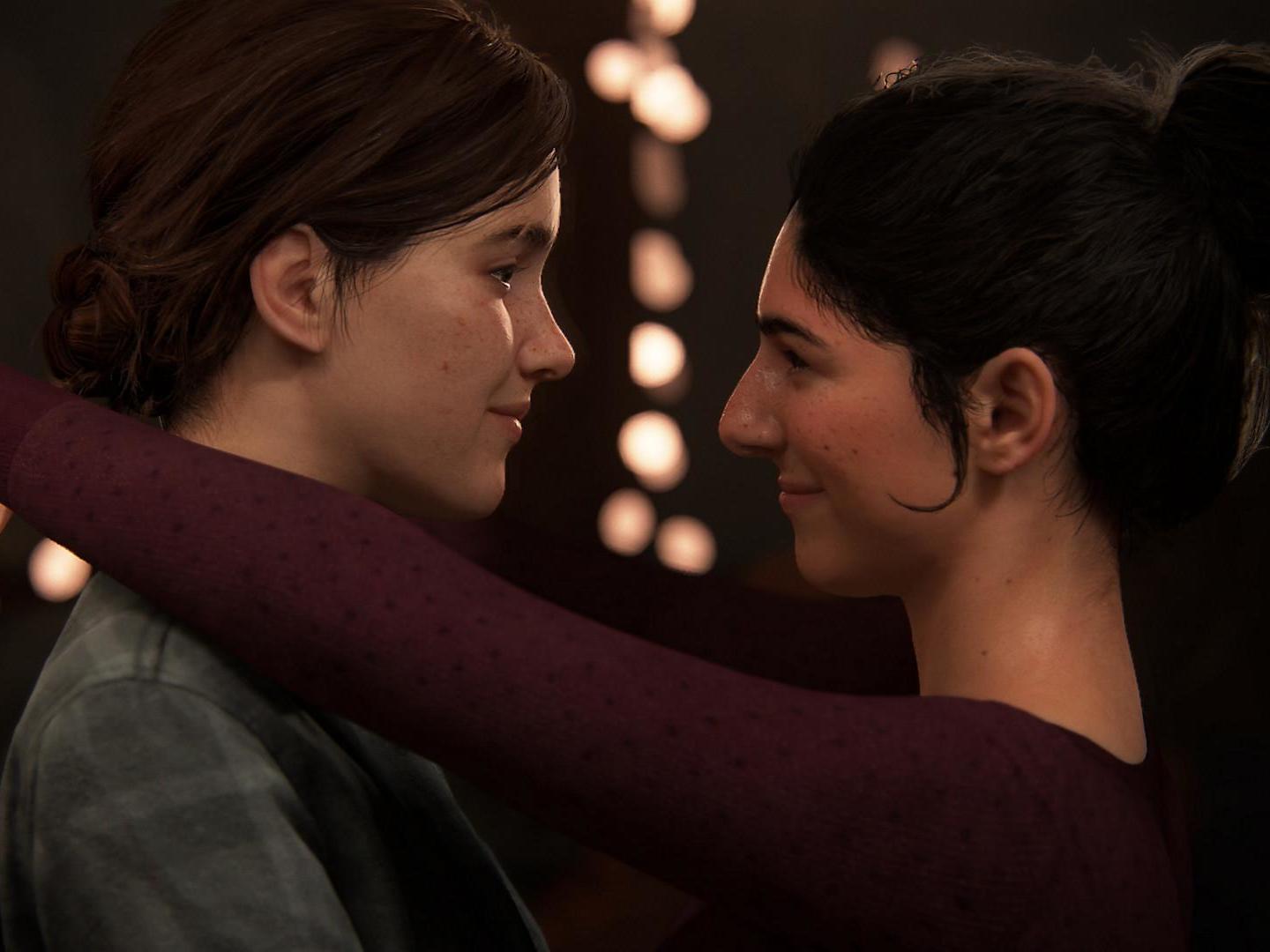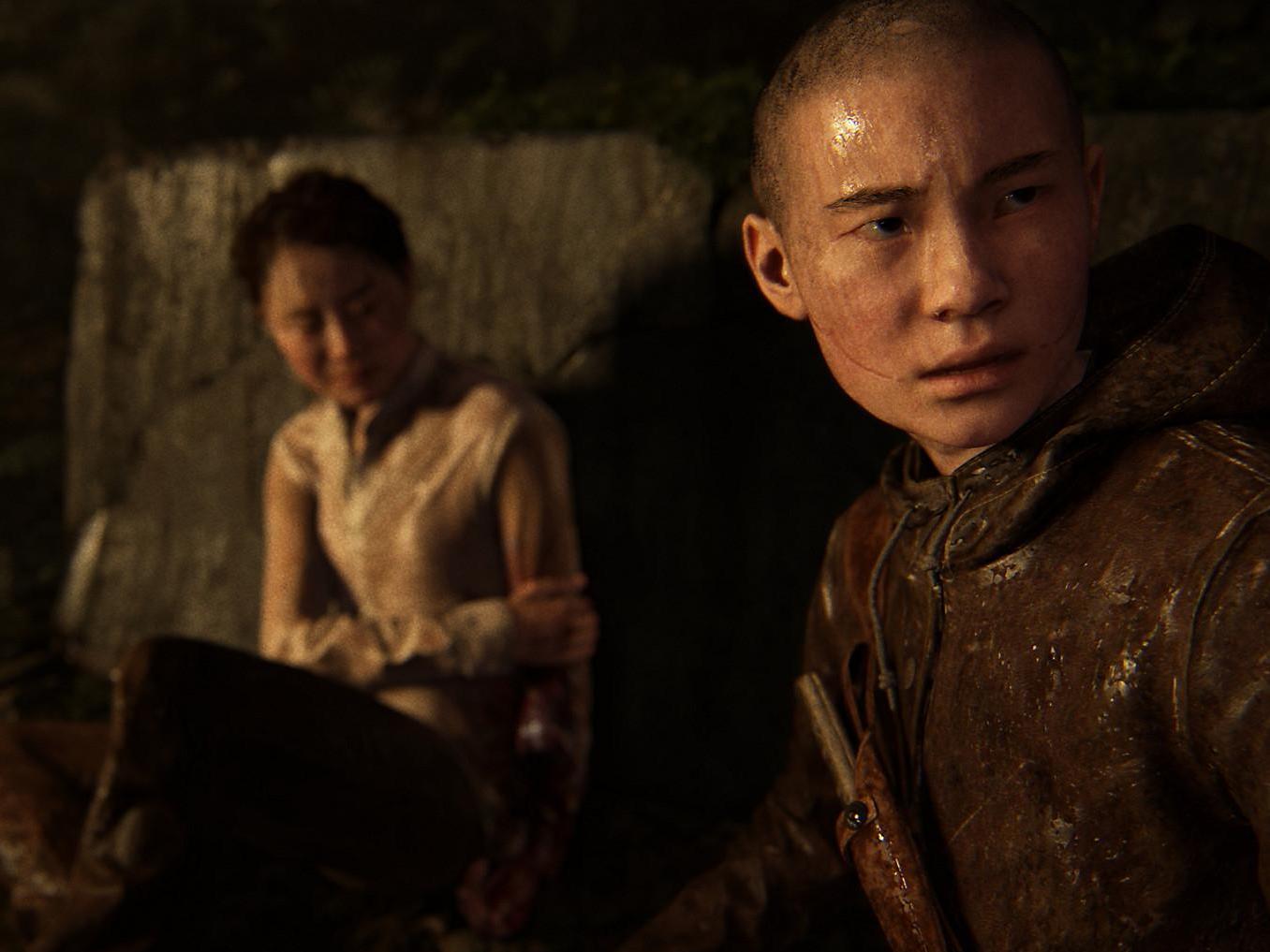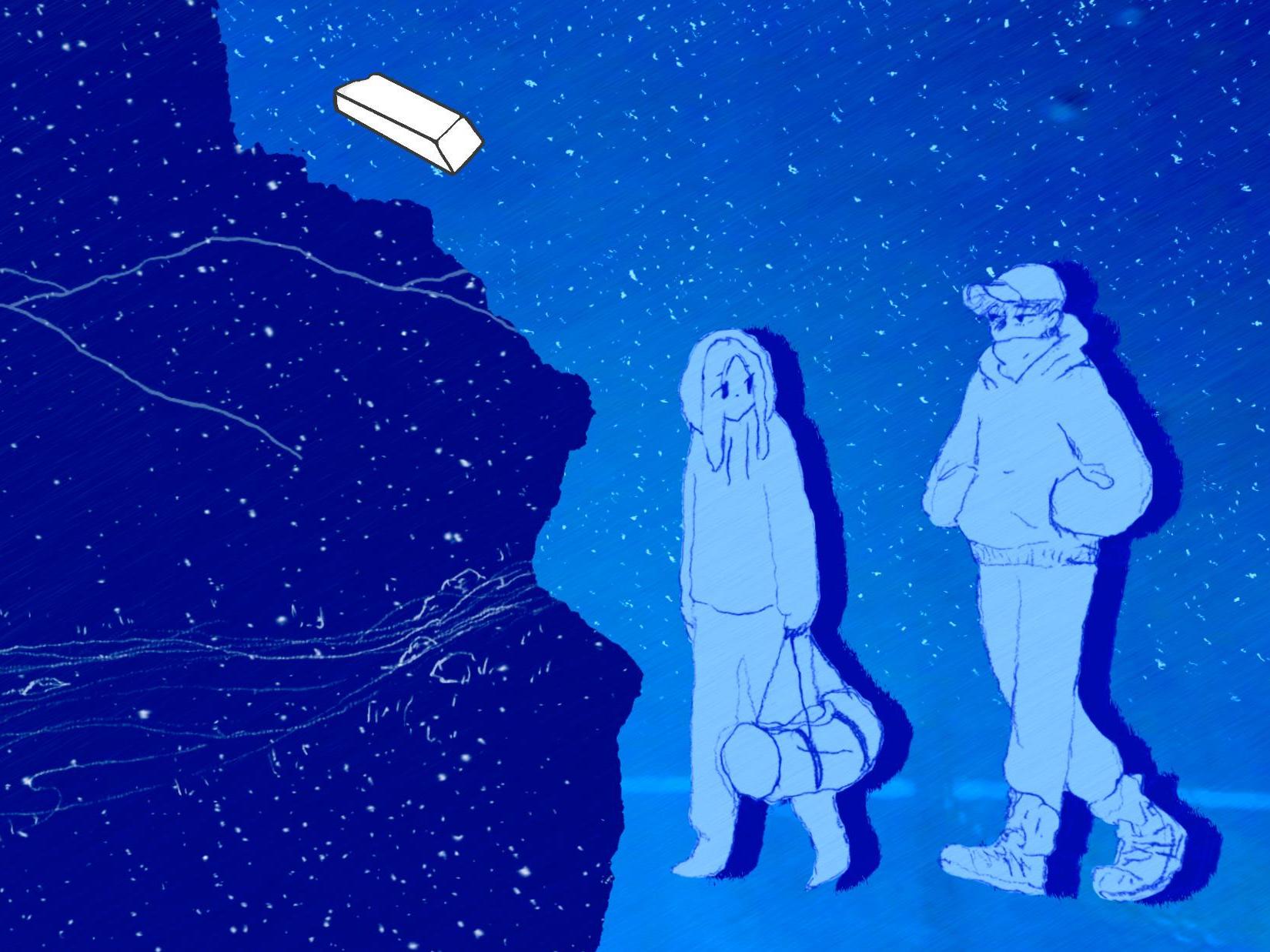The Last of Us Part II’s queer representation is groundbreaking. Is it enough?
Naughty Dog’s blockbuster game deserves credit for its complex, foregrounded LGBT+ characters, writes Louis Chilton. For many queer gamers and creators, however, the industry still has a long way to go


Your support helps us to tell the story
From reproductive rights to climate change to Big Tech, The Independent is on the ground when the story is developing. Whether it's investigating the financials of Elon Musk's pro-Trump PAC or producing our latest documentary, 'The A Word', which shines a light on the American women fighting for reproductive rights, we know how important it is to parse out the facts from the messaging.
At such a critical moment in US history, we need reporters on the ground. Your donation allows us to keep sending journalists to speak to both sides of the story.
The Independent is trusted by Americans across the entire political spectrum. And unlike many other quality news outlets, we choose not to lock Americans out of our reporting and analysis with paywalls. We believe quality journalism should be available to everyone, paid for by those who can afford it.
Your support makes all the difference.What does it mean to be represented? It is not just seeing your own face or desires on a screen – being told, implicitly, there is value in your story. Representation is about who makes these depictions, and who profits from them. We – all of us – should not simply be seen, but understood. In video games, as in all media that has grown and warped under our culture of prejudice, true representation can be hard to come by.
Minor spoilers ahead for The Last of Us Part II.
The Last of Us Part II, the sequel to the universally acclaimed 2013 action game The Last of Us, is out today, and is poised to become one of the most commercially successful game releases ever. It’s also a game in which the protagonist, Ellie, is a lesbian, and two of the biggest supporting characters are queer: Dina, a bisexual woman, and Lev, a transgender teenage boy. In this regard, The Last of Us Part II is nothing short of groundbreaking, offering the kind of visible queer representation that is never found in equivalently high-profile blockbuster films.
For all its brilliance, though, The Last of Us Part II is a complicated game. Its glowing – and aggressively publicised – review scores do not paint the whole picture; already, the game has left people divided. Many of the critiques have homed in on its extreme violence. Part II dodges some of the tawdrier stereotypes that often plague queer narratives, but it’s still a story of immense pain and suffering, inflicted all too often on queer characters.
Video games can be squeamish about depicting any sexuality, let alone queer sex. For its part, The Last of Us Part II shows enough physical intimacy to believably sell its romances. It is cagey, however, about labels – about using words like “lesbian” or “transgender” (though a certain homophobic slur does rear its head late on).
When spoiler-heavy cutscenes from the game were leaked in April, the reaction online from right-wing trolls was loud and noxious. Much of the vitriol was directed at the characters Lev and Abby – the game’s sort-of-antagonist, who, presumably due to her muscular appearance, was misidentified as trans – and at the decision to give Joel, the white, male lead of the first Last of Us, a substantially diminished role.
Bo Ruberg, author of The Queer Games Avant-Garde, says that The Last of Us Part II’s queer representation is “absolutely a good thing”, and notes how “LGBTQ players are feeling excited and empowered by the presence of these characters in such a prominent game. The fact that certain gamers are opposing the game including LGBTQ characters just shows how important this kind of queer representation is. It’s shaking up what close-minded, toxic people think video games should look like – which helps us see how much we need this change.”
In many ways, The Last of Us is doing nothing new; queerness has been explored in video games for decades. CM Ralph’s cult 1989 murder-mystery adventure game Caper in the Castro is widely cited as the first LGBT+ game, telling the story of a lesbian private investigator who hunts for her kidnapped drag queen friend on the streets of San Francisco.
In the past decade, while there has been improved queer representation in many high-budget games, such as Dragon Age: Inquisition, Mass Effect and Overwatch, the most potent queer narratives have usually been found in indie games. Some of these have managed to gain wider recognition – games like 2013’s Gone Home, Life is Strange and Butterfly Soup have earned no small amount of acclaim for bringing queer characters to the fore with invention and sensitivity.
Kate Craig, the environment artist for Fullbright who worked on Gone Home (and Fullbright’s follow-up, Tacoma), tells me: “Good, thoughtful representation in a game (not just queer) comes from hiring people with that lived experience. While it’s always a delight to come across nuanced representation, I’m personally less concerned with what a character is written to identify as, and more interested in studios that hire queer developers and create a culture removed of microaggressions.”
“A fellow dev at a former studio, upon learning I had a wife, told me he thought lesbians were fine but couldn’t stand gay men,” she continues. “I don’t think it’s a leap to say that kind of culture won’t be meaningfully representing much of anything.”

One month before The Last of Us Part II’s release, an Irish games studio called Dreamfeel was earning rave reviews for If Found, a lyrical coming-of-age tale about a young trans woman in coastal Ireland. “I’m more interested in representation behind the camera than in front of it,” says Llaura McGee, one of the creators of If Found, “because I think the latter follows the former. The biggest issue we face is not in getting queer or Bame people making games. We’ve always had them, but it’s in keeping them. A lot of the traditional industry creates barriers and spike walls towards these people, implicit and explicit.”
McGee also points out that it’s wrong to conflate the ideas of mainstream success with financial clout, contrasting the queer-inclusive farming game Stardew Valley, originally created by a one-person development team, with Death Stranding, Hideo Kojima’s slow and esoteric but high-budget 2019 sci-fi.
“What’s mainstream gaming?” she asks. “More people play Stardew Valley than Death Stranding. Is one of those mainstream because it’s a console game with lots of high-res models? In music or film, the mainstream is the stuff with wide appeal across ages and tastes, and I think games are only starting to scratch those itches.”
If Found and Gone Home are just two of the queer-focused games that have flourished without the money and publicity of large game studios. According to Ruberg, there are now “literally thousands” of queer video games, many of which are hosted on the marketplace itch.io, and are developed by independent queer creators.
One such creator is Robert Yang, a game developer and academic whose work often pointedly explores queer sexuality. His experimental games include The Tearoom (a cottaging simulator set in the 1960s in which players must fellate NPCs with guns for genitals and avoid detection by the police) and Cobra Club (in which players must help their character take, and send, dick pics). His latest, Hard Lads, is based on a viral video clip of young northern English men smashing each other over the back with chairs.
For Yang, The Last of Us Part II’s queer representation is “fine” – but “it doesn’t really support LGBTQ communities or politics, it’s just a small gesture from an entertainment company. When we talk about representation, we also need to talk about who makes and controls that representation. By that metric, queer artists and creators everywhere, and especially LGBTQ people of colour, are still struggling to be heard.”

Of course, the problem extends beyond the games themselves, to the platforms that host them. “Tech companies and game platforms are continuing their war against queer politics and sexuality,” says Yang. “We’ve all given up so much power to just a handful of huge companies, and it will always be in their interest to try to shut out queer creators – from Tumblr banning ‘female-presenting nipples’, to Tiktok and Instagram’s frequent ‘shadow ban’ punishment of queer people, to Twitch banning indie games that dare to centre intimacy and sexuality, to Apple and Google’s stranglehold on what people are allowed to do with their phones... The word ‘mainstream’ doesn’t quite capture this policing of the horizon, this slow killing of the future.”
At the end of the day, many of the problems facing queer gamers and queer creators are rooted in the problems of capitalism. It would be remiss to talk about The Last of Us Part II and not mention one of the games industry’s biggest problems: crunch.
Crunch, the term for the practice of working brutal overtime hours to make sure games meet deadlines, is expected at pretty much every major US games studio, and The Last of Us developer Naughty Dog are, by most accounts, no exception. The game looks and feels better than just about any other, but it comes at a substantial cost to the welfare of its designers.
“I do think that we’ll continue to see incrementally more LGBTQ people represented in mainstream games,” says Ruberg. “But whether those representations will be candid about the politics of queerness is another matter. I don’t think the true radical politics of queerness will ever be taken up in a large, widespread way by the mainstream games industry, because they are fundamentally rooted in questioning the kinds of structures of power that the mainstream games industry itself runs on.
“There have been a lot of very valid critiques of game cultures and the mainstream game industry for being toxic and exploitative,” they continue. “A lot of queer people who care about games are asking ourselves: if that’s the situation, is that the kind of gaming landscape we want to be included in?”